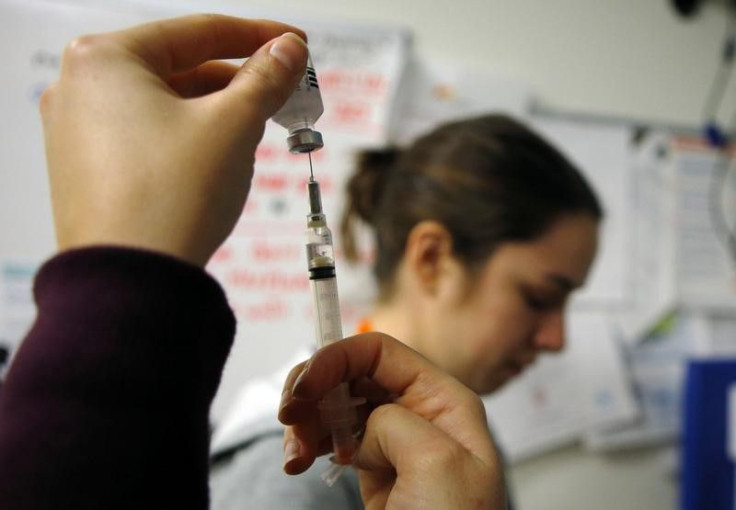Vaccination Controversy: No Autism, MMR Vaccine Link, New Study Finds

A study released in a leading medical journal Tuesday is the latest piece of scientific research to find no link between autism and the vaccine against measles, mumps and rubella (MMR). Despite this confirmation, controversy about perceived risks associated with the vaccine are unlikely to diminish amid an ongoing political battle in the U.S. about immunization.
"Although a substantial body of research over the last 15 years has found no link between the MMR vaccine and [autism spectrum disorder], parents and others continue to associate the vaccine with ASD," the study’s authors wrote in the Journal of the American Medical Association (JAMA). "Surveys of parents who have children with ASD suggest that many believe the MMR vaccine was a contributing cause."
With its focus on children at a higher risk of developing autism, the study’s findings add compelling evidence to the argument that no link exists between the disorder and the MMR vaccine. Some 95,000 children were studied, 2 percent of whom had an older sibling with autism, which is thought to run in families. The vaccines were found to have no effect on autism risk, regardless of whether an older sibling had been diagnosed.
As significant as these findings are, they are not likely to sway people who believe there is a relationship between the vaccine and autism, said Robert Stephens, a pediatrician in Seguin, Texas. “In my experience, people who are anti-vaccination are not particularly open to having their minds changed,” he said. “I don't necessarily think that people in the anti-vaccination community are going to look at this study and suddenly change their minds.”
Fears about the link between the disorder and the vaccine go back to 1998 after an article published by the subsequently discredited Dr. Andrew Wakefield claimed to find evidence the MMR vaccine had caused autism in 12 children. While the article was later found to be fraudulent and Wakefield was stripped of his medical license, fears have persisted, prompting many parents in the U.S. to decide against having their children immunized. The trend has become evident amid recent outbreaks of the diseases, including one that began in Disneyland in California late last year. One-hundred-59 children across 18 states were diagnosed with measles, a disease the government had declared eliminated in the U.S. in 2000.
The surge in outbreaks has prompted a legislative push in California to eliminate personal belief exemptions for parents refusing to immunize their children. The new bill, which would force these parents to teach their children at home, has provoked a vocal outcry by anti-immunization campaigners, who forced a delay in voting on the measure.
While those parents will unlikely be convinced by the JAMA study, Stephens argued it could instead persuade those who are undecided about the benefits of vaccination. “For parents who are concerned, it provides them with further reassurance and confidence in their decision to vaccinate and protect their children from these diseases.”
© Copyright IBTimes 2025. All rights reserved.






















